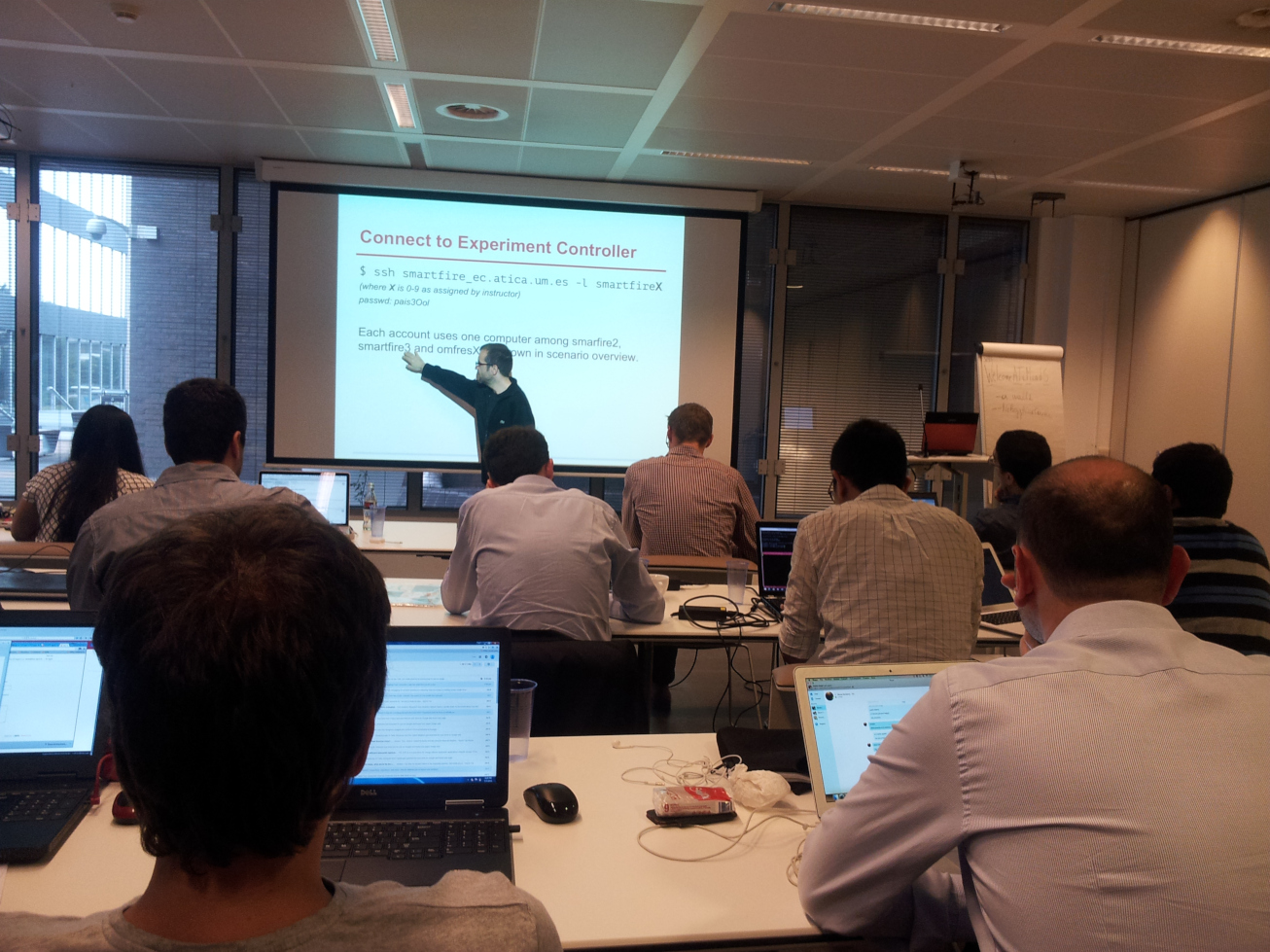Fed4FIRE
Worldwide federation of Next Generation Internet testbeds

PROJECT OVERVIEW
Experimentally driven research is considered to be a key factor for growing the European Internet industry. In order to enable this type of RTD activities, a number of projects for building a European facility for Future Internet Research and Experimentation (FIRE) have been launched, each project targeting a specific community within the Future Internet ecosystem. Through the federation of these infrastructures, innovative experiments become possible that break the boundaries of these domains. Besides, infrastructure developers can utilize common tools of the federation, allowing them to focus on their core testbed activities.
Recent projects have already successfully demonstrated the advantages of federation within a community. The Fed4FIRE+ project intends to implement the next step in these activities by successfully federating across the community borders and offering openness for future extensions.
SCIENTIFIC AND TECHNICAL OBJECTIVES
Fed4FIRE+ will pursue the following scientific and technical objectives:
- Open, accessible and reliable facilities supporting a wide variety of different Internet research communities
- Simple, efficient, and cost effective experimental processes
- Increased trustworthiness of facilities
- Sustainability of the experimental infrastructures
TECHNICAL APPROACH
Fed4FIRE+ will establish a common federation framework by developing, adapting or adopting tools that support experiment lifecycle management, monitoring and trustworthiness. A large number of existing experimentation facilities in Europe will be adapted to seamlessly integrate in the federation. Such facilities typically focus on different kinds of networking related research or on different communities regarding services and applications. Example domains are optical networking, wireless networking, software defined networking, cloud computing, fog computing, data science applications, smart cities, etc. Therefore the federation will have to support a very heterogeneous set of requirements. To guarantee that the federation framework meets all of them, representatives of all these FIRE research communities will be actively involved in the definition of the federation architecture. Each of them will also lead the uptake of the Fed4FIRE+ platform in their specific community.
SCOPE OF THE FEDERATION FRAMEWORK
The Fed4FIRE+ federation framework will enable experiments that combine facilities from the different FIRE research communities. To validate the effectiveness of the framework, researchers from different Future Internet areas will be invited through Open Calls to perform innovative experiments using the Fed4FIRE+ federation. Their experiences will be used to further develop the federation framework. Additional infrastructures will also be invited to join the consortium.
PROJECT TIME SCHEDULE AND OPPORTUNITIES FOR EXPERIMENTS
The project, started in January 2017 and running over 5 years, is split in two phases:
The development activities will take place in the first three project years – until 2019. The last year the project will run in “sustainability mode”. This means that the Fed4FIRE+ experimentation facilities will still be available for experimenters, to use the facilities for free but without funding for the experimenters from the Fed4FIRE+ project (which is the case in Open Calls for experimenters). Until now, the Fed4FIRE+ project organised one Open Call for Experiments and new Testbeds/Facilities as well as two specific Open Calls for SME Experimenters. Additional calls for SME Experimenters are in consideration (to be confirmed).
The facilities will be open for experimenters, beyond participation in the Fed4FIRE+ Open Calls for Experiments, until the end of the project. Interested parties to perform experiments on the Fed4FIRE+ facilities can contact the project at any time to explore opportunities to perform the experiments.
ACKNOWLEDGEMENT
Fed4FIRE+ project has received funding under grant agreement No 732638 from the Horizon 2020 Research and Innovation Programme, which is co-funded by the European Commission and the Swiss State Secretariat for Education, Research and Innovation.